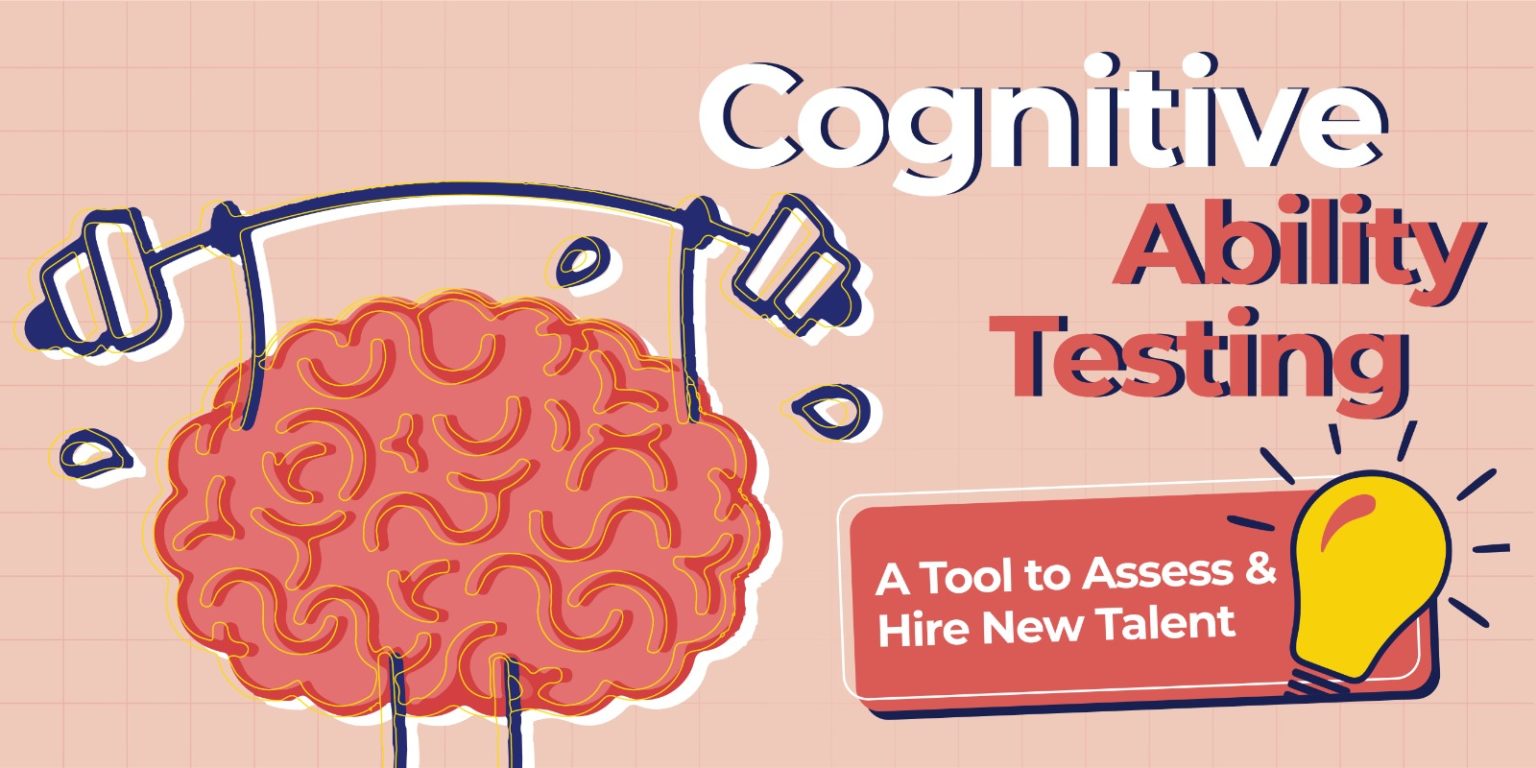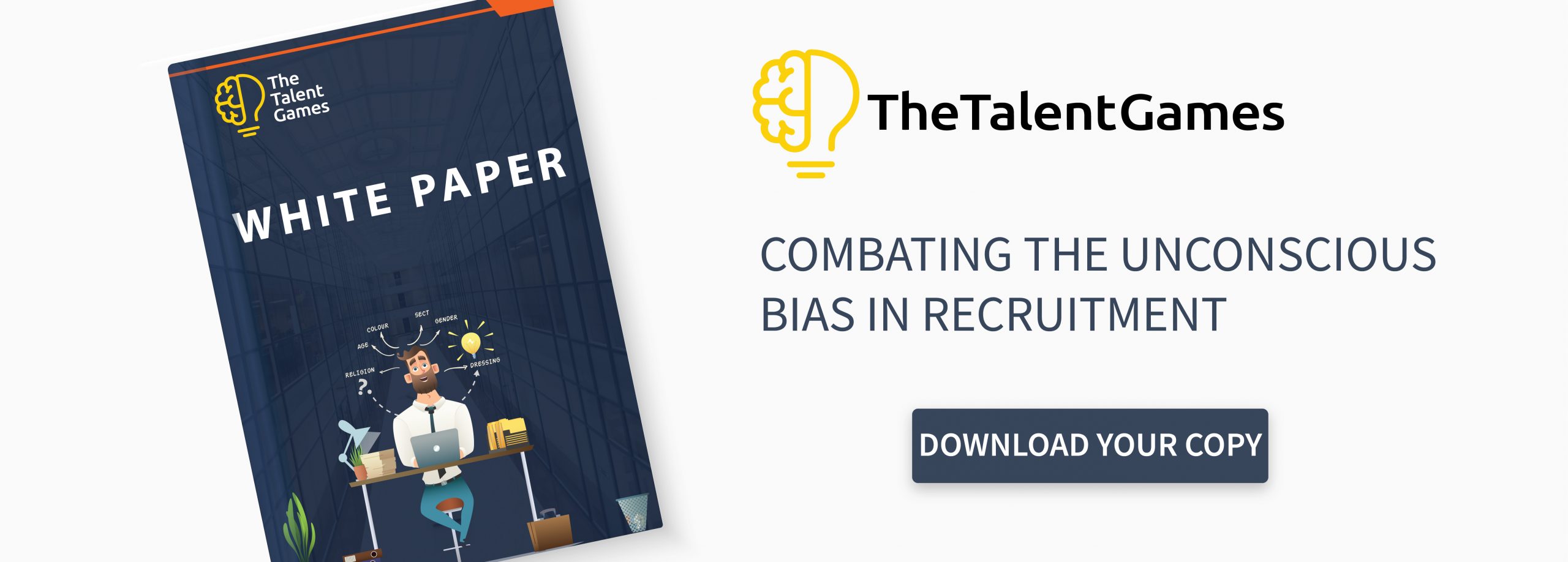Cognitive ability testing is not just about finding the smartest candidates. It’s about finding the candidates who have the skills and abilities to succeed in your organization and prevent you from the staggering cost of bad hires. Learn more about the importance of cognitive assessments in this blog post, and what are its modern variations.
Finding the right talent for the right jobs is a bit similar to assembling a dream team of superheroes. Each role requires unique abilities – some need quick thinkers, others problem-solving geniuses. But how do you find these hidden talents?
This is where Cognitive ability testing helps you. It’s like a special tool that helps companies identify individuals with extraordinary thinking powers – people who can analyze complex problems, adapt quickly, and learn fast.
This blog explores how cognitive ability assessment works and its vital function in the world of hiring. Whether you are a job seeker or an HR professional, this descriptive blog will change your perspective on talent acquisition.
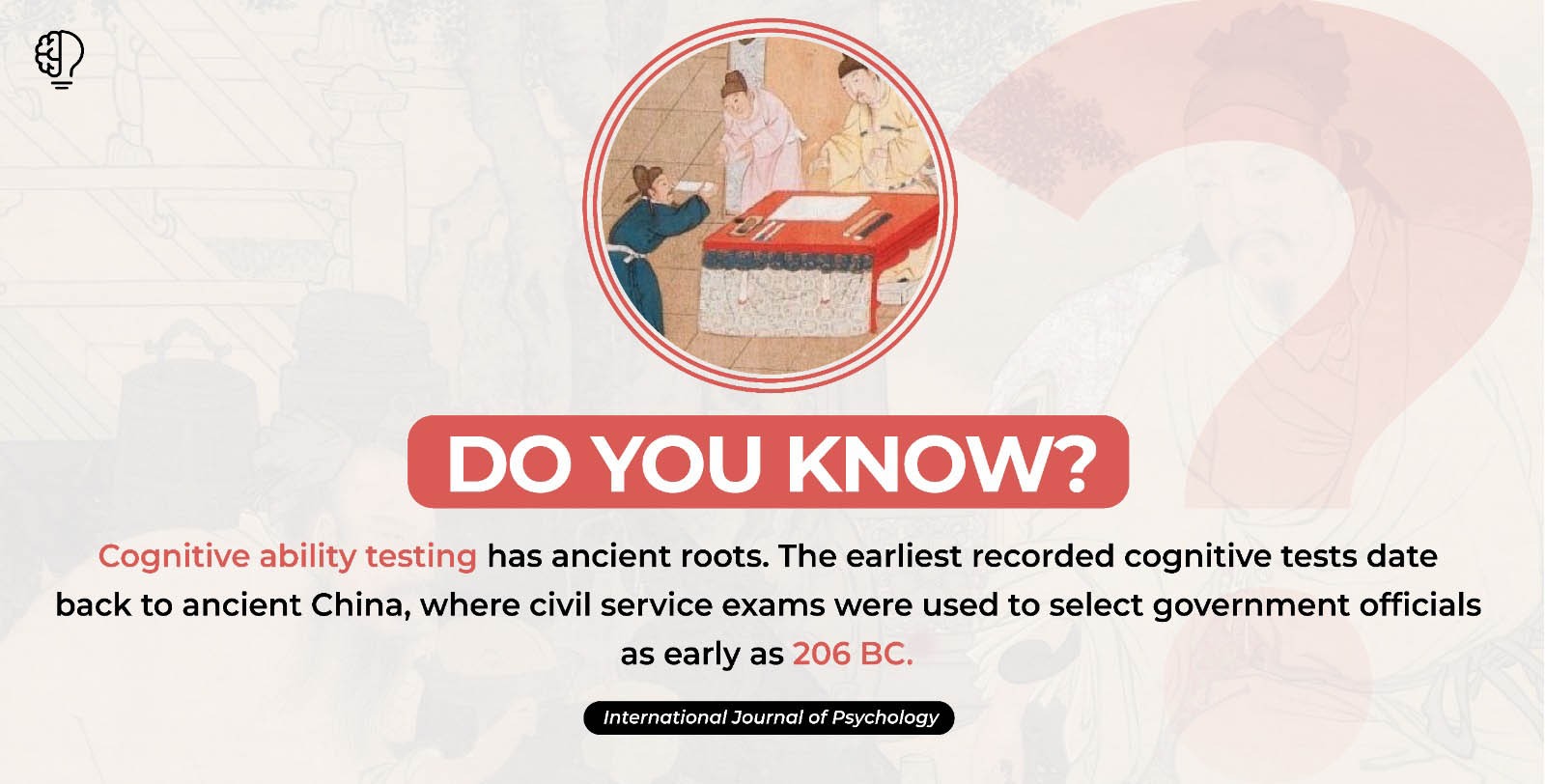
Understanding Cognitive Ability Testing
What Is Cognitive Ability Testing?
Cognitive ability testing is like a reliable compass in the recruitment landscape—a tool that guides you through complexities and helps pinpoint the best talent available.
These tests measure various cognitive skills, such as problem-solving, logical reasoning, verbal and numerical skills, and more. They give you a clear picture of a candidate’s intellectual horsepower.
I remember a time when we relied heavily on resumes and interviews to make hiring decisions. While those are valuable, cognitive ability tests take it up a notch.
According to a study by Mettl, 80% of Fortune 500 companies use cognitive ability tests in their hiring process because they’ve seen a correlation between strong cognitive skills and job performance.
Types of Cognitive Ability Tests
Cognitive ability tests come in different types, just like ice cream (but without the calories). You’ve got verbal reasoning, numerical reasoning, and logical reasoning tests. Each type assesses specific cognitive skills relevant to different roles.
For instance, if you’re hiring a data scientist, you’d want to throw some numerical reasoning tests their way to see how well they handle those complex algorithms. If it’s a content strategist you’re after, a verbal reasoning test can reveal their knack for effective communication.
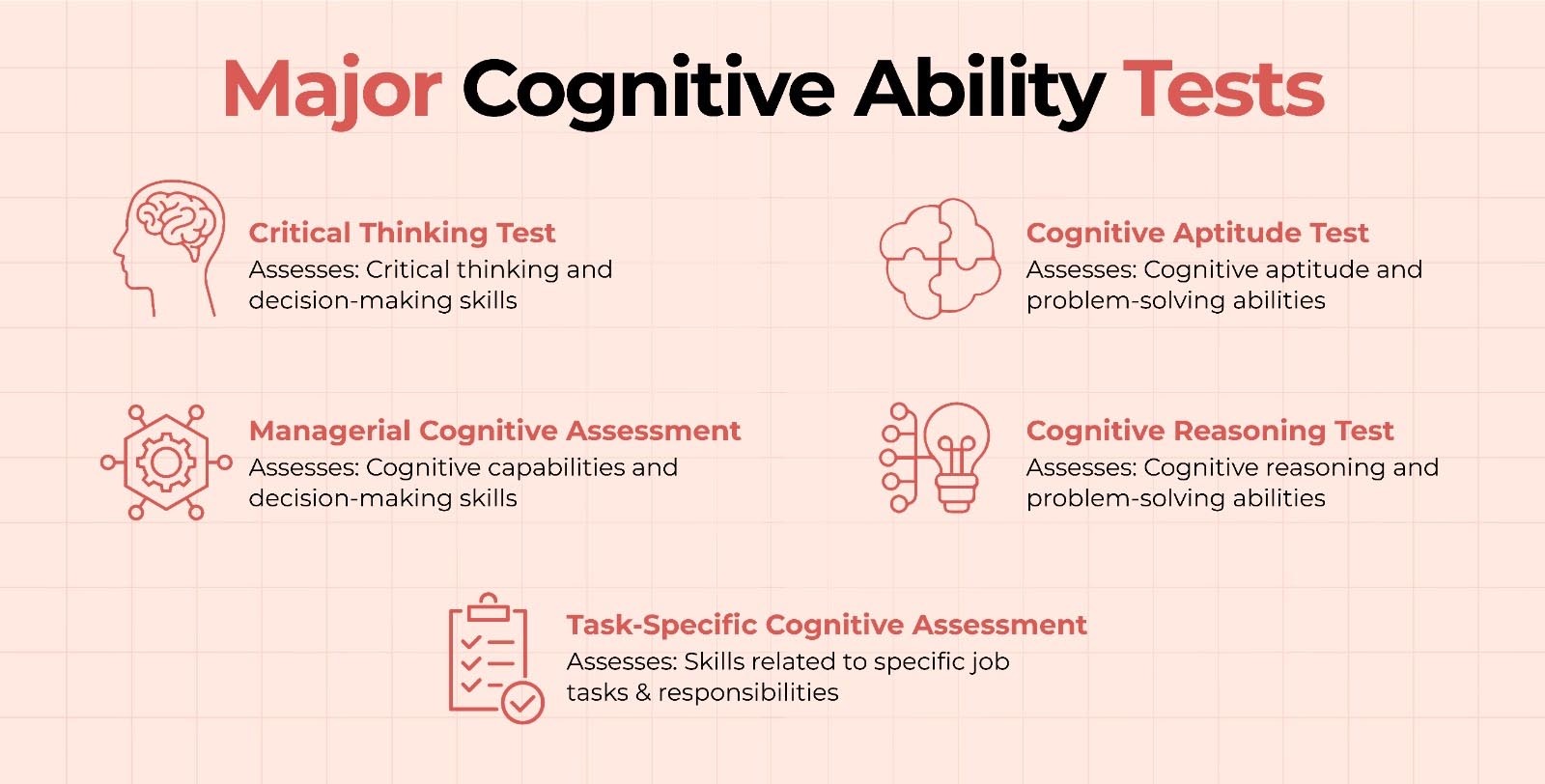
Traditional vs Modern Cognitive Ability Testing
There has been a rapid change in the method of cognitive assessment and there is no doubt that one must always look for the latest developments. Here are a few of the differences between the traditional cognitive assessment and the modern ones:
Traditional assessments are like pen and paper kind of tests. The candidates have to be available on-site and the questions are quite standardized to assess verbal, numerical, and logical skills. The candidates waited a long time for the feedback.
On the other hand, modern cognitive ability testing offers the biggest advantage of allowing candidates to participate from anywhere. The recruiters can customize these tests according to the job role and the candidates get instant feedback.
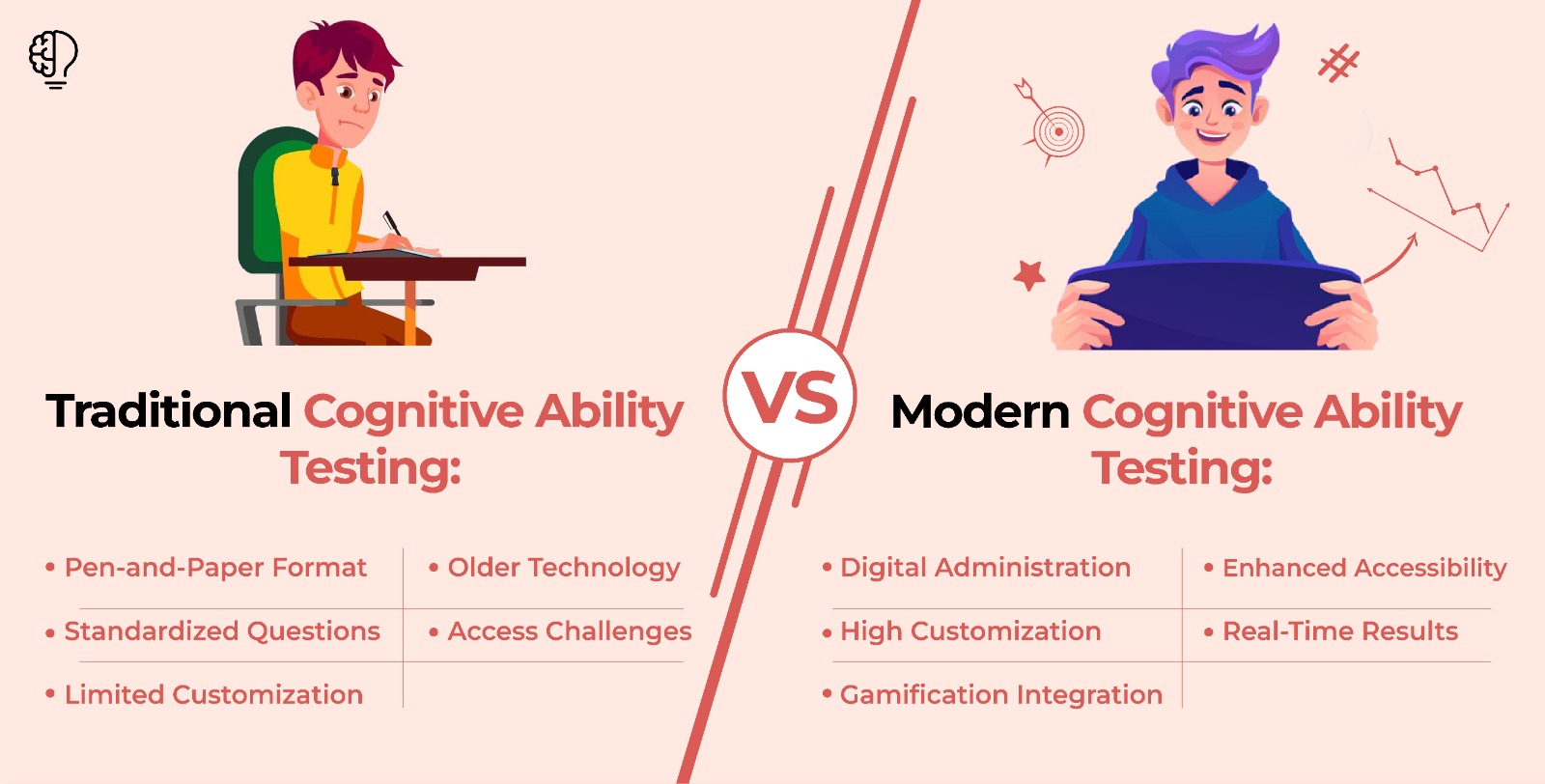
The Science Behind Cognitive Ability Testing
The work relevance of cognitive abilities
So, why are cognitive abilities such a big deal in the workplace? Well, picture this: You’ve got a software developer who can code up a storm but struggles with logical problem-solving. What happens when they encounter a bug in their code? Chaos! That’s what happens.
Cognitive abilities are the superpowers that allow your employees to adapt, learn, and solve problems effectively. They’re the driving force behind innovation and efficiency in your tech team.
Psychometrics: The Nuts and Bolts
Now, let’s get nerdy for a sec. Cognitive ability tests are like the superheroes of assessment tools. They have to be accurate, reliable, and consistent. That’s where psychometrics comes into play. It’s the science behind the science.
Psychometrics ensures that these tests are valid and reliable. Validity means the test measures what it’s supposed to measure. Reliability means the results are consistent over time. We don’t want our hiring decisions to be based on flukes, right?
And this is not just a raw claim. Research by Frank L Schmidt shows that out of various selection tools, cognitive ability tests are the strongest predictors of performance at the job. The other types include education level, job experience, and structured interviews, etc.
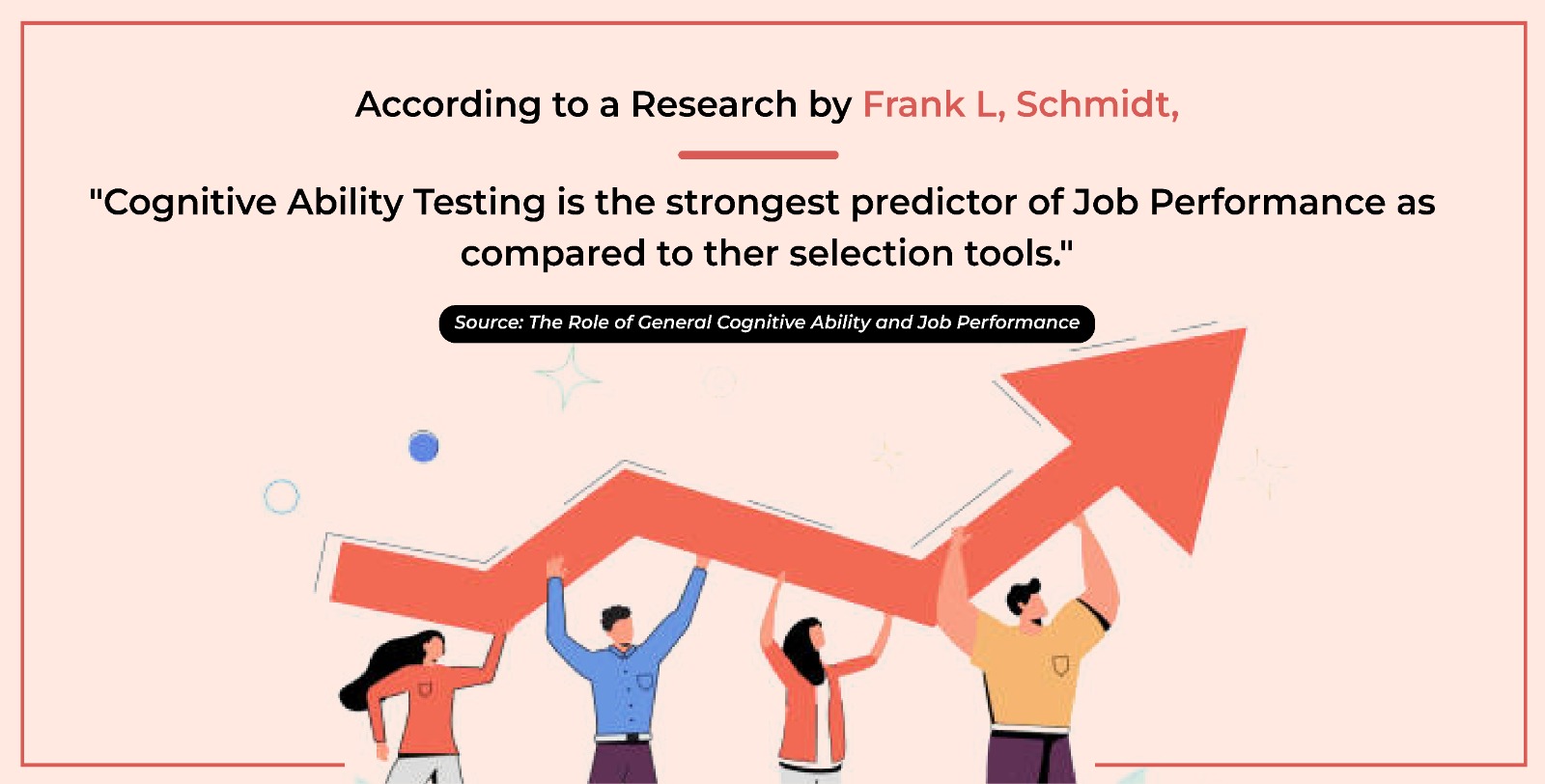
Cognitive Ability Testing in the Recruitment Process
• Pre-Screening Magic
One of the best parts about cognitive ability testing is that it can save you tons of time in the hiring process. Imagine you’re a recruitment firm handling dozens of applicants daily. You can use these tests as a preliminary filter to quickly identify high-potential candidates.
The research by Schmidt has also shown that cognitive testing help you save time and cost during your hiring process. Reducing the time of the hiring process is essential for the candidate experience. Another research suggests that 60% candidates leave the process because it’s long enough.
• Complementary Powers
Now, don’t think for a moment that cognitive ability tests should replace everything else. They’re like a spice in your recruitment recipe, not the main dish. Combine them with interviews, skills assessments, and culture fit evaluations for a well-rounded approach.
There are various companies like Accenture, Google, and Microsoft that use cognitive assessments for hiring candidates. One of the prominent effects they have witnessed is reduced turnover.
• Avoiding Biases in Cognitive Testing
Cognitive ability tests are like the great equalizers in recruitment. They don’t care about your background, gender, or race. But, like all tools, they can be misused. It’s crucial to implement them fairly and ethically.
There are a few ways you can avoid biases like using cognitive assessments in conjunction with other testing methods like video interviews. You further need to be aware of your own biases as well to assure the transparent assessment.
Benefits of Psychometric Games for Recruitment Firms
- Streamlining Candidate Selection
Recruitment firms, are you tired of sifting through mountains of resumes? Cognitive ability tests can be your knight in shining armor. They help you identify top candidates quickly, allowing you to focus your energy on building relationships and adding value to your clients.
- Happy Clients, Happy You
Happy clients are your bread and butter. When you consistently present them with top-tier candidates, they’ll be singing your praises. This leads to long-lasting partnerships and, of course, more business.
- Enhance Candidate Fit Assessment
Cognitive ability tests not only help you identify top candidates quickly but also enable you to assess their fit within specific roles. Matching candidates to job requirements with precision ensures higher job satisfaction and longevity, benefiting both your firm and your clients.
- Time and Cost Saving
Streamlining the selection process with cognitive testing reduces the time and resources spent on manual resume screening and extensive interviews. This efficiency translates to cost savings, allowing you to allocate resources to more value-added services or expansion.
Benefits for Hiring Managers
- Identifying High-Potential Candidates
Hiring managers, imagine having a crystal ball that shows you which candidates have the potential to excel in your company. Cognitive tests are like that crystal ball. They help you spot hidden gems and save you from hiring mistakes.
- Reduced Turnover Rates
High employee turnover is a headache. Cognitive ability tests can help you build teams with strong problem-solving skills and adaptability, which often translates to lower turnover rates. A win-win for everyone!
- Improved Diversity & Inclusion
Cognitive ability tests, when designed inclusively, can help you identify a diverse pool of high-potential candidates. This promotes diversity and inclusion in your organization, enriching your workforce with varied perspectives and experiences.
- Customized Training & Development
By pinpointing candidates’ cognitive strengths and weaknesses, these tests empower you to tailor training and development programs. This targeted approach enhances employee growth, job satisfaction, and overall team performance.
Benefits for Talent Acquisition Enthusiasts
- Data-Driven Decision-Making
For all you data nerds out there, cognitive ability tests are a goldmine. They provide objective data that can guide your decisions. When you’re backed by data, you’re more likely to make the right choices.
- Staying Competitive
The job market is fierce, especially in the tech world. By embracing cognitive testing, you’re staying ahead of the curve. It’s like having a secret weapon in your talent acquisition arsenal.
- Efficient Candidate Comparison
Cognitive testing streamlines your candidate evaluation process, making it easier than ever to compare candidates objectively. It’s like having a trusted ally in your talent acquisition arsenal, helping you quickly identify top performers.
- Proactive Talent Pool Management
Utilizing cognitive ability testing as part of your talent acquisition strategy allows you to proactively identify and nurture potential candidates, creating a robust talent pool for future hiring needs and reducing recruitment lead times.
Read More: The Top HR Tech Trends of 2024
Benefits for Job Seekers
- Preparing for Cognitive Ability Tests
Job seekers, don’t be intimidated by cognitive tests. Instead, view them as an opportunity to shine. Brush up on your cognitive skills, and you’ll increase your chances of landing that dream job.
- Showcasing Your Skills
Once you’ve aced a cognitive test, it’s proof of your abilities. You can proudly present these results to potential employers as evidence of your problem-solving prowess.
- Boosted Confidence
Acing a cognitive test not only demonstrates your skills but also boosts your self-confidence. You can approach interviews and job applications with greater assurance, knowing that you have objective evidence of your capabilities to showcase.
Gamified Cognitive Assessments for Enhanced Experience
Like any tool, cognitive ability testing has its limitations. It shouldn’t be the sole basis for hiring decisions. There is a possibility of biases involved in the hiring process. The biases involved might be cultural, gender, racial, and disability biases.
To tackle those biases and provide better engagement, gamified cognitive assessments provide the next level of experience to the candidate. It is more engaging for candidates and also increases the accuracy of hiring.
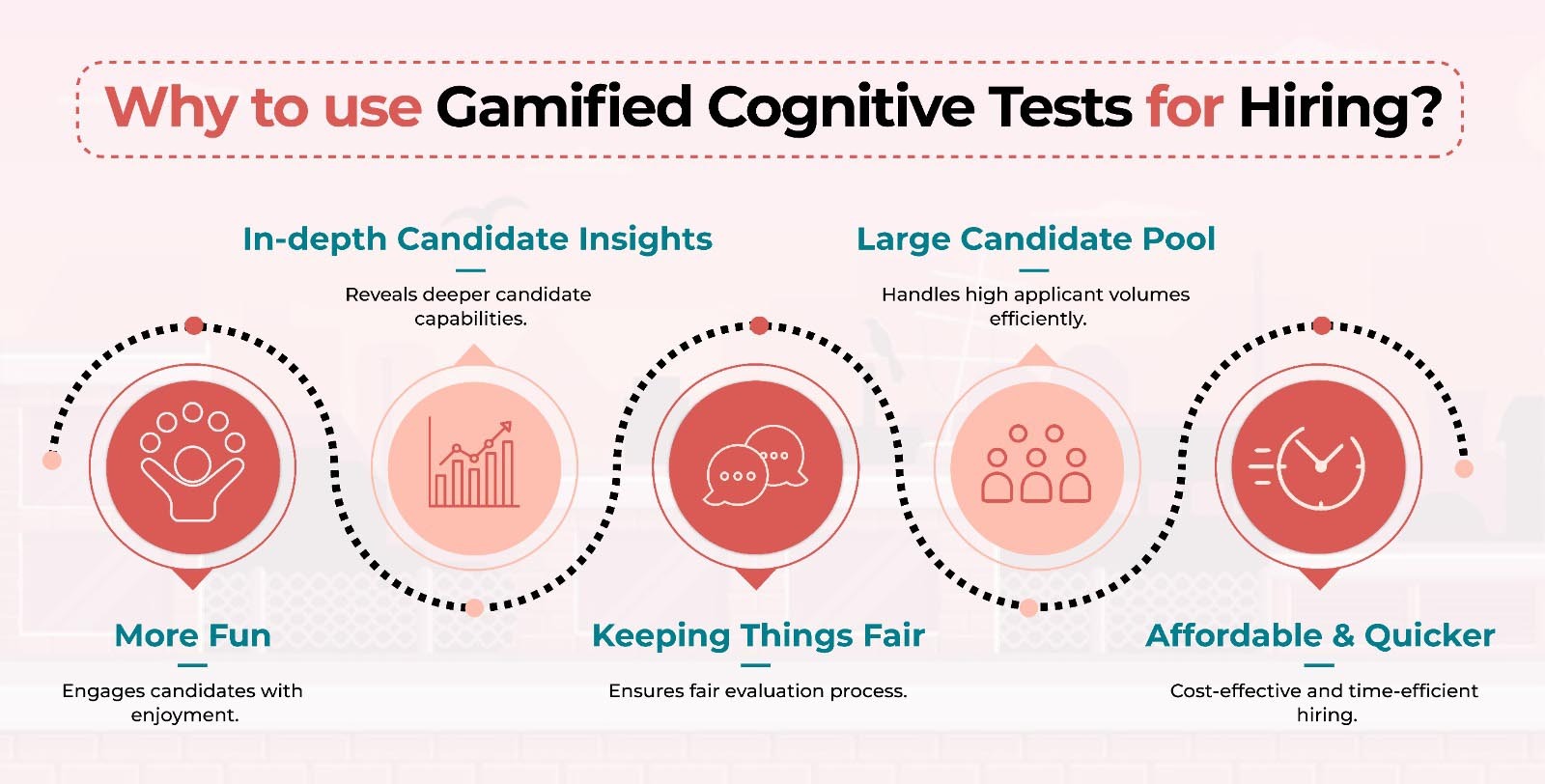
Best Practices for Gamified Cognitive Tests
You should take care of the following practices in employing gamified tests for hiring for maximum impact.
- Seamless Integration
Incorporate gamified cognitive tests seamlessly into your recruitment process, making them a valuable asset from the outset.
- Select Appropriate Games
Choose gamified tests that align with the skills required for the position in question. Just as you wouldn’t use a wrench for a faucet, select the right game for the job.
- Educate Your Team
Ensure your recruiting team understands how to effectively utilize gamified cognitive tests. It’s not only about administering the games but also interpreting the results.
- Measure Impact with Analytics
Leverage data and analytics to assess the effectiveness of gamified cognitive tests and make data-driven decisions in your hiring process.
The companies using Gamified Cognitive Ability Assessments
There are various famous companies that have employed gamified cognitive ability tests to hire the best talent for different programs like internships and management trainees. Below are a few of the well know companies that have used gamification to hunt the best talent.
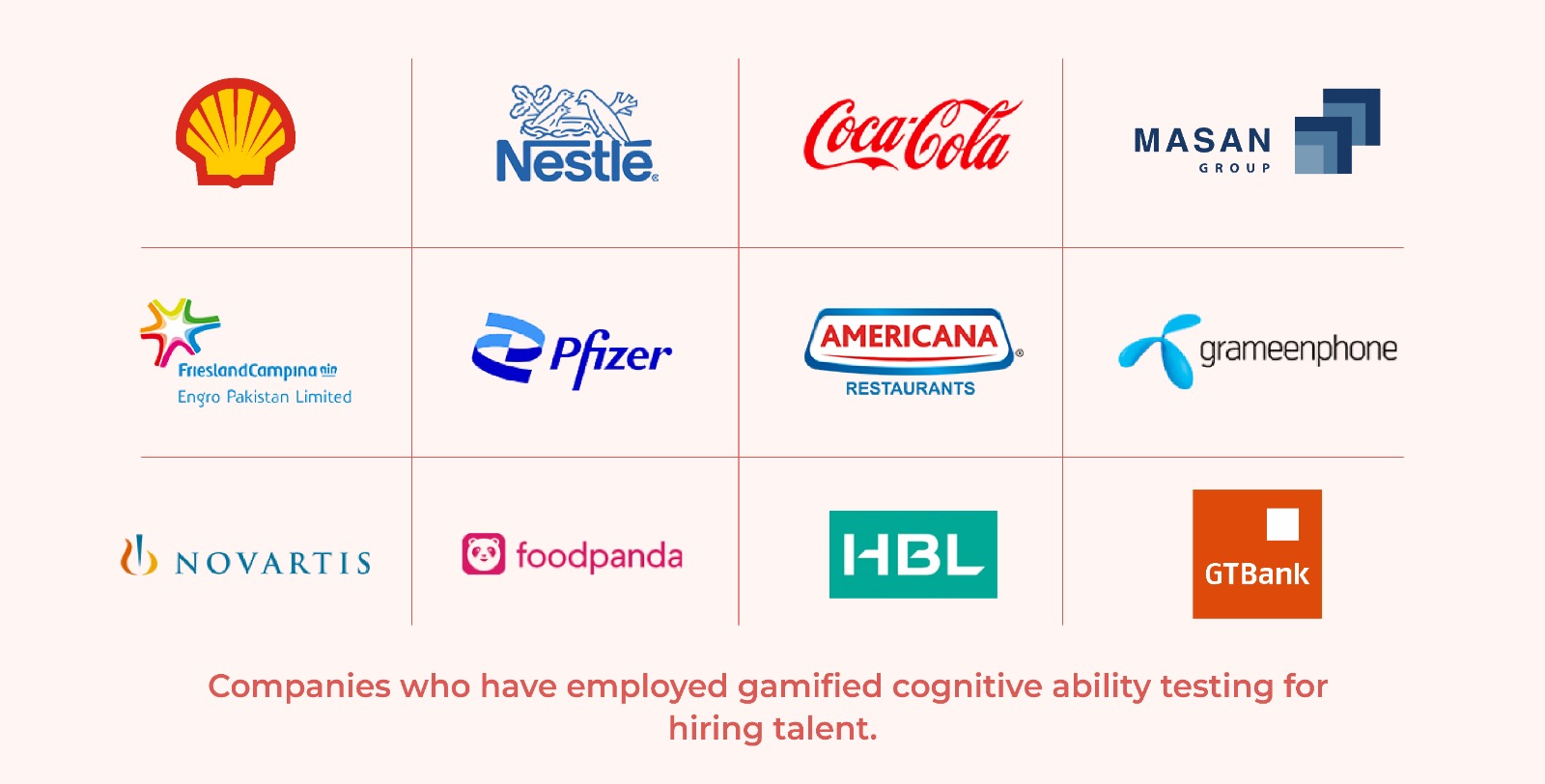
Conclusion
In a fast-paced tech world, finding and retaining top talent is the name of the game. Cognitive ability testing, especially the gamified psychometric assessments are your trusty sidekick in this quest. It’s not a silver bullet, but it’s a powerful tool that can revolutionize the way you hire.
So, whether you’re a recruitment firm aiming to streamline your processes, a hiring manager looking for stars in the talent pool, a talent acquisition enthusiast seeking a competitive edge, or a job seeker wanting to ace that interview, cognitive ability testing is your ally.
Embrace it, use it wisely, and watch as it elevates your talent acquisition game to new heights. The future of recruitment is here, and it’s smarter, fairer, and more effective than ever. Happy hiring!
FAQs:
1. What is cognitive ability testing, and why is it important in hiring?
Cognitive ability testing measures a candidate’s problem-solving, logical thinking, and learning capacity. It’s important in hiring as it helps employers predict job performance and identify high-potential candidates.
2. How do psychometric tests help in the recruitment process?
Psychometric tests provide insights into a candidate’s cognitive skills, personality traits, and behavioral patterns. This data helps employers make objective, informed decisions about candidates’ suitability for roles.
3. Can cognitive ability testing be used for all types of jobs?
Yes, cognitive ability testing is versatile and can be applied across various job roles to assess critical thinking and adaptability, which are valuable in any professional environment.
4. What makes The Talent Games' psychometric games different from traditional tests?
The Talent Games’ psychometric games have won award at multiple HR Vendor of the Year and they offer an engaging, interactive experience that accurately measures cognitive skills, providing deeper insights into a candidate’s abilities compared to traditional testing methods.
5. How do you ensure the accuracy of cognitive ability tests in hiring?
The Talent Games ensures accuracy by using scientifically validated psychometric assessments, which offer reliable data to predict job performance and help organizations hire the best-fit candidates.
